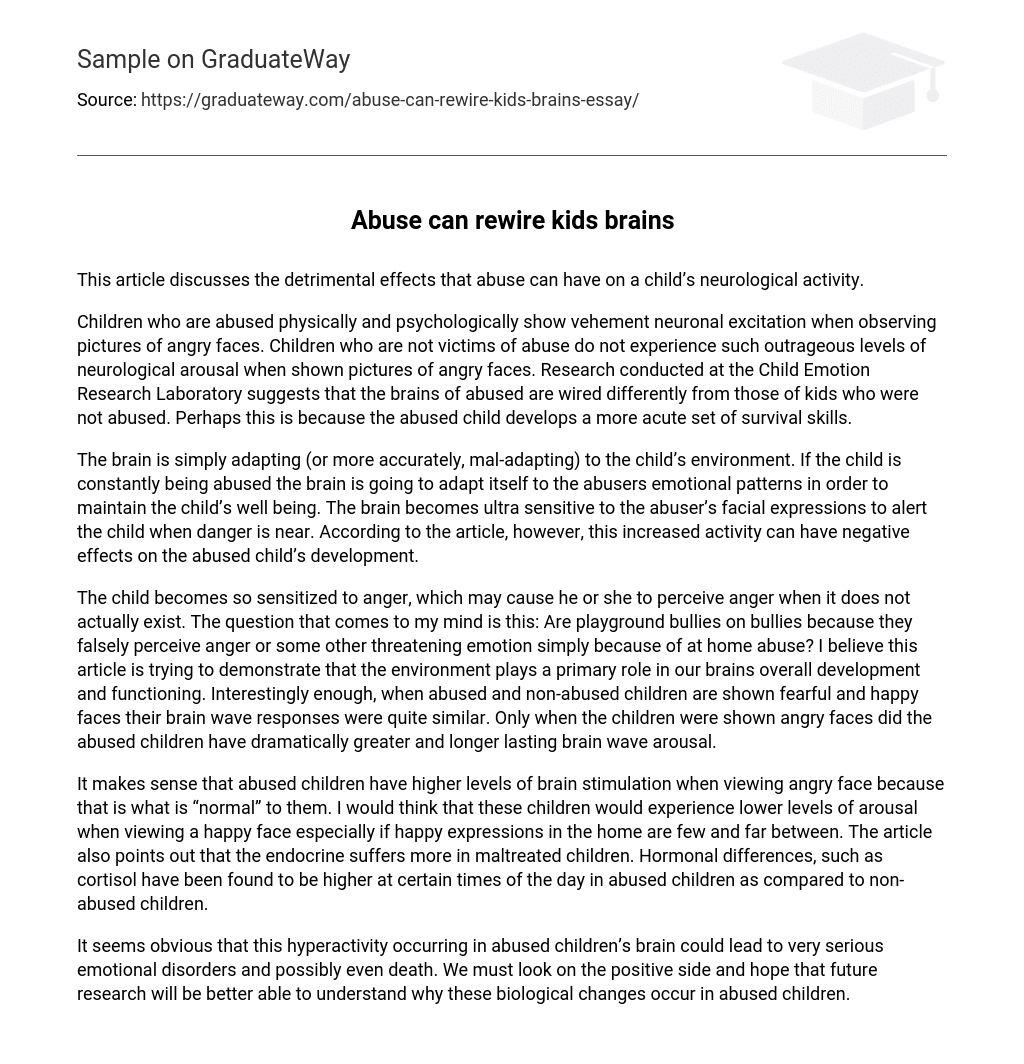The neurological functioning of a child is negatively impacted by abuse, as discussed in this article.
A study conducted by the Child Emotion Research Laboratory reveals that children who have been victims of physical and psychological abuse display a notable neurological reaction upon encountering angry faces. On the other hand, children who have not undergone any form of abuse do not demonstrate the same elevated neural arousal when exposed to these images. The research implies that there might be dissimilarities in brain structures between abused children and those unaffected, possibly stemming from the development of improved survival abilities among victims of abuse.
The article highlights that when a child undergoes abuse, their brain continually adjusts to the surroundings, safeguarding their welfare. By mirroring the emotional behaviors of the abuser, the brain alters itself to ensure recognition of potential threats. This adaptation results in heightened sensitivity towards the abuser’s facial expressions, aiding in threat detection. However, this increased sensitivity can adversely impact the child’s development.
The text examines the heightened sensitivity to anger in abused children, leading them to perceive anger even in its absence. The author ponders whether playground bullies display this behavior as a consequence of misinterpreting anger or other threatening emotions due to their own experiences of abuse at home. The main focus of the article is to emphasize the profound impact of the environment on brain development and functioning.
Curiously, studies have discovered that both abused and non-abused children exhibited similar brain wave responses when exposed to fearful and happy faces. However, when exposed to angry faces, the abused children displayed significantly stronger and longer-lasting brain wave arousal compared to their non-abused counterparts.
Children who have been abused may exhibit increased brain activity when exposed to angry faces, as they are accustomed to these emotions. In contrast, they may experience reduced excitement when encountering happy expressions, particularly if positivity is infrequent in their surroundings. Moreover, maltreated children frequently undergo hormonal imbalances, including elevated cortisol levels during specific periods of the day compared to non-abused children.
The occurrence of hyperactivity in abused children’s brains can cause severe emotional disorders, and in extreme cases, it may even lead to death. However, it is crucial to stay positive and hopeful that future research will provide a better understanding of the root causes behind these biological changes seen in abused children.





